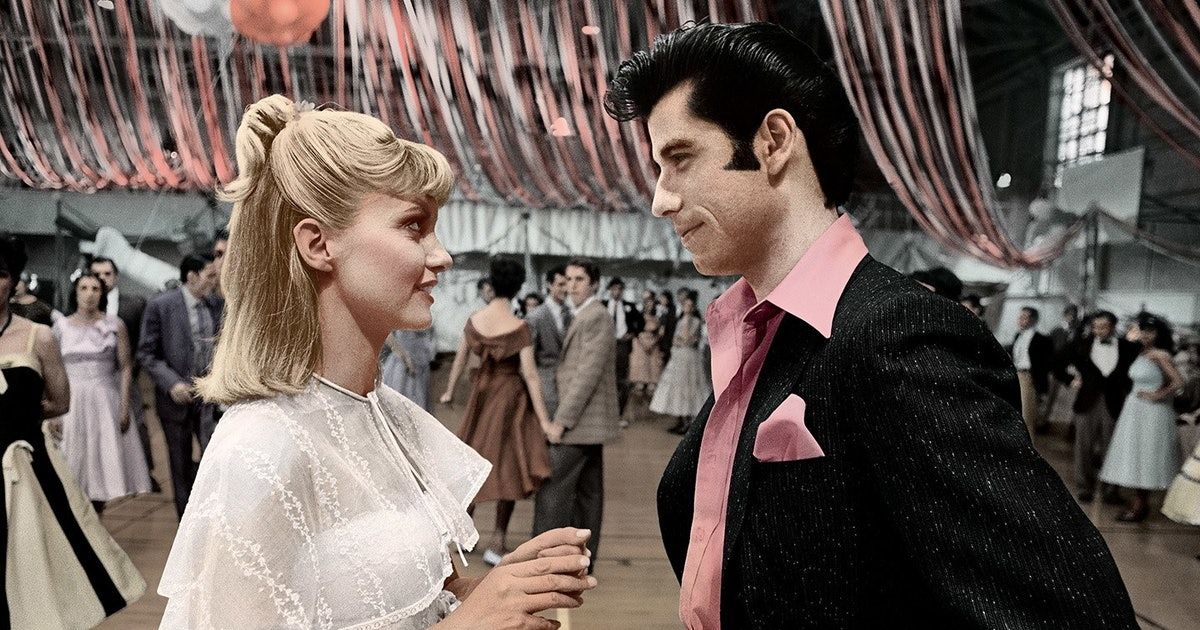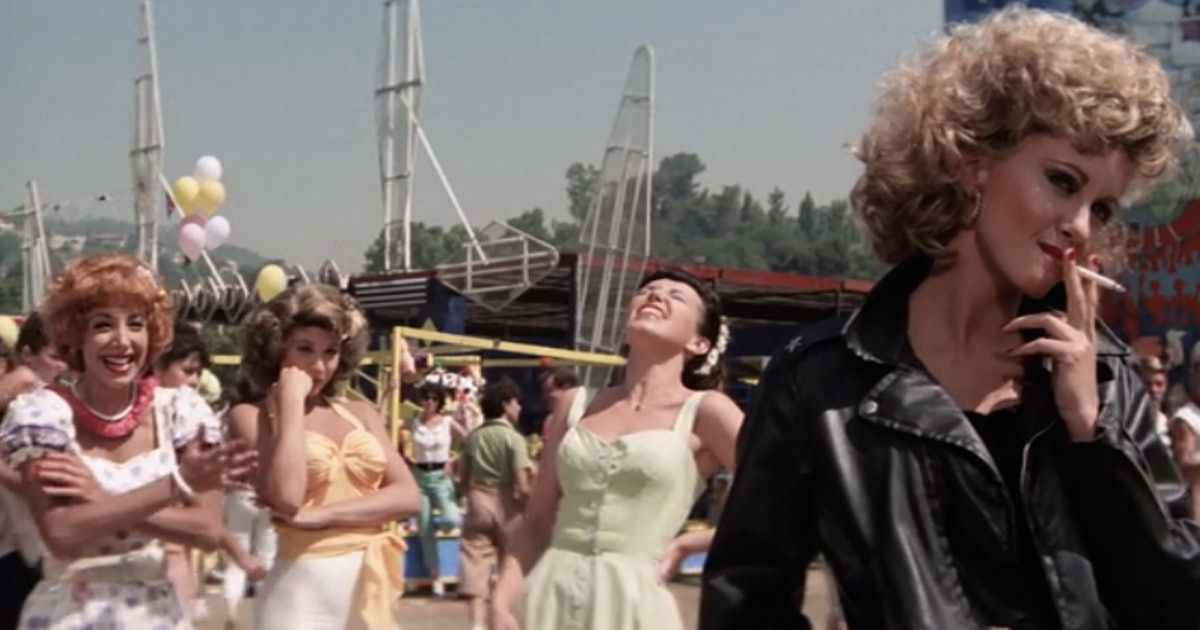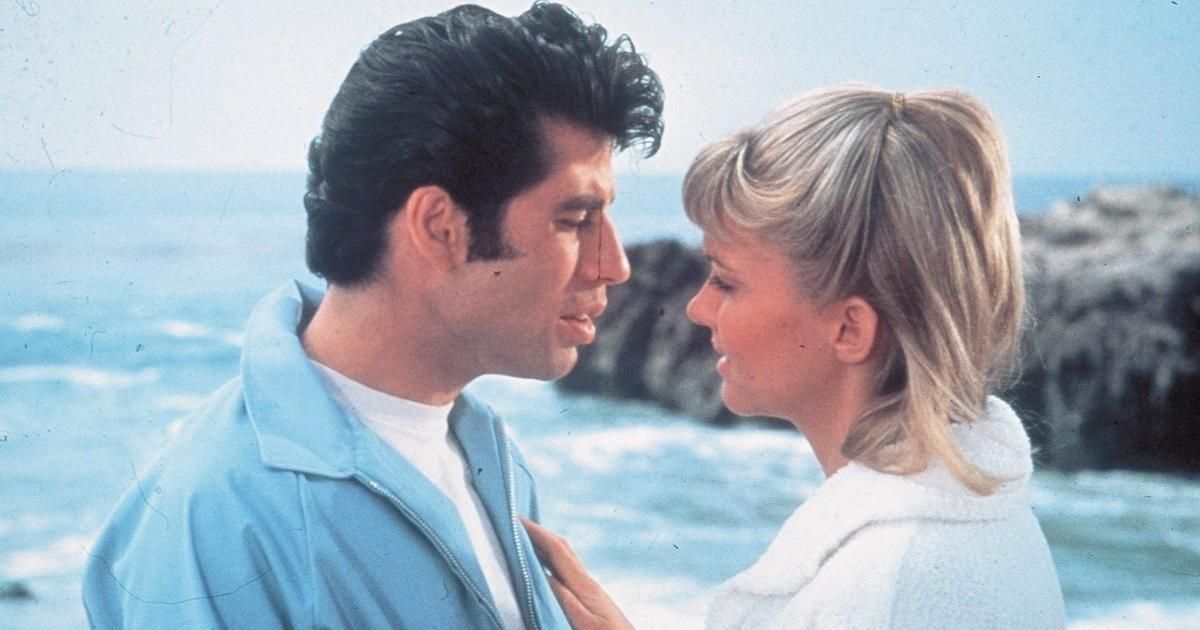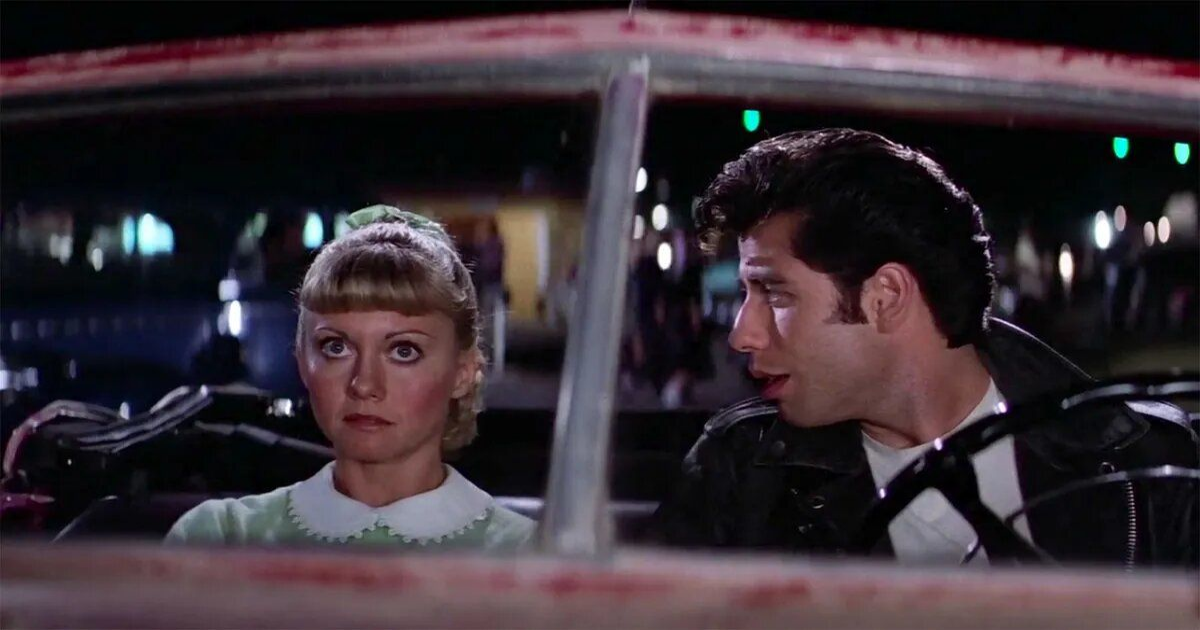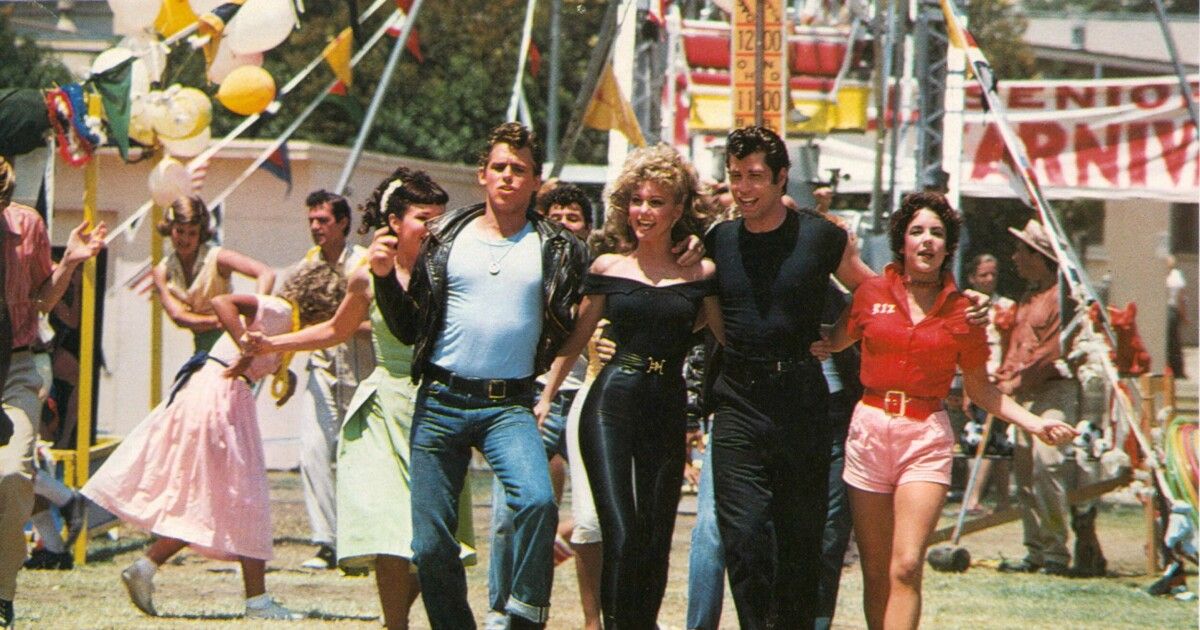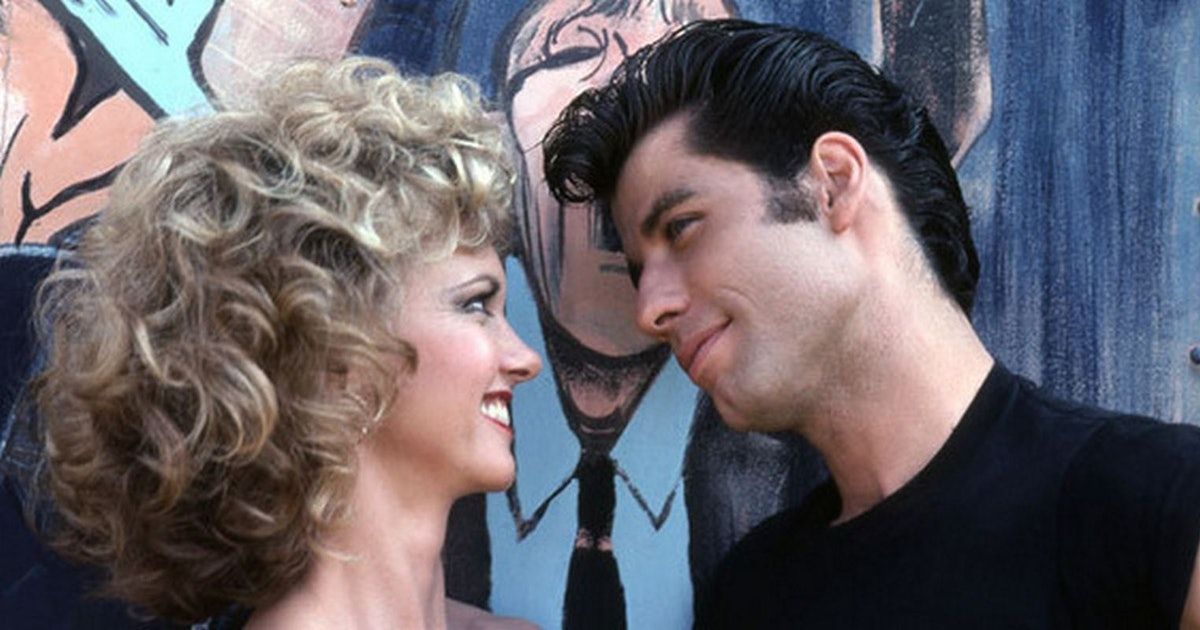Grease. One of the most impactful signifiers of late '70s fashion, greaser subculture, and (other than a particularly delectable PB&J), Halloween costumes for couples to ever grace the silver screen. After the film’s success as the highest-grossing musical film of its time, it seems redundant to state that the culture, attitudes, and aesthetics of Grease have had a major knock-on effect in representing the true nature of high school love in film, including being a firm example of the “Good Girl / Bad Guy” rom-com plot niche.
However, long debated amongst John Travolta fans and sociologists alike is the ultimate Grease-related question: after all the messed-up things Danny did throughout the course of the movie, did he really deserve to be forgiven? Here are the arguments on either side.
NO: The Only Thing He’s Changed Is His Clothes
Do you think any man in the cinematic history of ever has actually done his fair share in the “couples meeting in the middle to stabilize their relationship” trope? Because there seems to be a disturbing majority of male protagonists who will treat their female love interests appallingly, in countless movies where the girl gets with the wrong guy. Then these guys pop into the barber’s for a quick trim ahead of the romantic reunion, thinking that an incredibly trivial physical change will undo the past hour and a half’s worth of public humiliation and misogyny. Maybe we should start applying that rule to the law — providing you’re in a position to switch your hair parting to the left from the right, feel free to treat people as badly as you like! This is now The Purge: Musical Rom-com Edition!
So what did Danny do, after repeatedly publicly humiliating his poor, naive love interest like she was the biggest idiot in the world, and making a few very creepy sexual decisions? Pop on a Letterman sweater and unenthusiastically trip over a few hurdles on a track.
Sandy, in comparison, is literally wearing a LEATHER CATSUIT. She took hours out of her day to curl, primp, style, blow-dry, and presumably sauté that voluminous bouffant of hair atop her head (admittedly in one of the most extreme cases of almost-80s-does-50s hairstyling, but still) and squeeze herself into an all-black ensemble during what looks like a very sweaty day at the carnival, yet he had the audacity to throw on a cardigan and think that was good enough? And somehow it WAS? Danny Zuko really wrote the book on “pretty privilege.”
YES: Danny’s a Kid
Teenage boys are messy. Teenage boys who live in the ‘70s and have to deal with the social expectations of “becoming men” are even messier. Sure, the plot is gross, vaguely sexist, and has a minimum 75% rate of horribly unlikeable main characters, but again, this movie is the product of a long bygone era, where adolescent girls consenting to have sex was seen as a degrading vice, and adolescent boys who conversely weren’t having sex were seen as lesser (though, unfortunately, some of this ideology’s effects do linger on in the modern day).
Even recent movies have become problematic in 2022. Provided that the "arc of the moral universe bends toward justice," and the rise of social justice continues to expand the way it has for the past 50 years, by 2122 much of our current media will resemble repulsive, grotesque, and hateful depictions of oppressed minorities, even if by today’s standards they may be seen as an improvement.
Similarly, if actual adolescent conversation between a group of young people was recorded throughout the course of a school year (especially in relation to sexual power dynamics), there would probably still be the existence of creepy behavior, or sexism, or off-color jokes, because people are human and therefore not impervious to errors in judgement. Screenwriters and directors should be allowed to reflect these flaws, and not have to represent young characters as perfect and angelic in order to be palatable to moviegoers.
So, while it’s not reasonable to treat this film as a documentary, and therefore relinquish responsibility for the creators who normalized a happy ending for characters who enacted sexist and predatory behaviors, we should allow media that reflects the attitudes of its time, even if that means looking back on that piece of content unfavorably 50 years later.
NO: Creeps Don’t Deserve Easy Forgiveness
It could also be argued that, while filmmakers should be allowed to depict characters who are not virtually principled, without the audience being allowed to criticize the actions of terrible characters, there is no accountability held against these actions. Media is one of the most powerful sources in influencing public opinion and subsequent public behavior, which is why witnessing a physically attractive love interest act sexually aggressively and chauvinistically, followed by his subsequent exoneration at the end of the movie, is so harmful when left unaddressed. Despite the 1970s and 2020s being significantly different points in time, culturally and socially, female-based violence is still a recurring problem, which is why we can’t just allow Danny to be forgiven on the basis of being a protagonist and having nice cheekbones.
And yes, it was part of the culture at the time — even in another of John Travolta’s films released around a similar time, Saturday Night Fever, his character, Tony Manero, essentially got away with attempted rape on the basis of female forgiveness, because the evolution of his perceived character growth was not undermined by his predatory behavior. The same is true with Grease; Sandy forgives Danny for the terrible things he’s done, including trying to comedically touch her breasts without her consent, force himself on her in his car, and make a slew of gross, and sexualizing comments about her with his friends.
Ultimately, just because the actions were a byproduct of social expectation (also causing a multitude of factors that influenced Sandy’s decision to forgive him) doesn’t make him any less of a creep. The audience should always be careful of handing out unearned forgiveness just because the love interest does.
YES: He Tried To Be Better, When It Was Easier Not To
Many of Danny’s sexual decisions (including the awkward “hand on breast” car fiasco) were motivated by him being not nearly as cool as he thinks he is. He’s not trying to be a sexual predator, he’s not trying to be nasty to Sandy at every public avenue; his character is just of an age where the opinion of his friends matters more to him than his own moral compass or the feelings of his girlfriend. Most people haven’t managed to forge their own stable perspectives of themselves and not rely on the opinions of others in young adulthood, let alone during their teenage years, so when it comes to a lot of morally gray behavior, it could be argued that there’s a debate whether actual intention matters.
Does he deserve criticism for being those things, even if they weren’t intentional? Yes. The fact that he did the things he did to impress his friends doesn’t erase the hurt he caused the women and secondary characters in his life, nor does unintentionally hurting people automatically become more morally virtuous than hurting people consciously (depending on the behavior). Again, though he’s 18, and he’s surrounded by a bunch of other 18-year-olds who don’t have his (or even their own) best interests at heart. Breaking away from the mold that raised him, which he at the very least attempted towards the end of the film, is much harder than it appears to an external viewer, especially when doing so goes against everything he has been taught about masculinity.
Final Verdict
Conclusively, Danny probably didn’t deserve the forgiveness he received from Sandy (at least without a lot more visible growth), and only in a movie directed in the ‘70s that had its characters randomly bursting into song would be permitted to suggest otherwise. Was he an irredeemably evil and horrible character who intentionally sought out opportunities to inflict pain? No. He was just a confused teenager living in a world with harmful stereotypes about how men were expected to behave. Yet still, maybe 2022 can be the year we finally put to rest the image of Sandy and Danny as the romantic ideal for teenage relationships.

